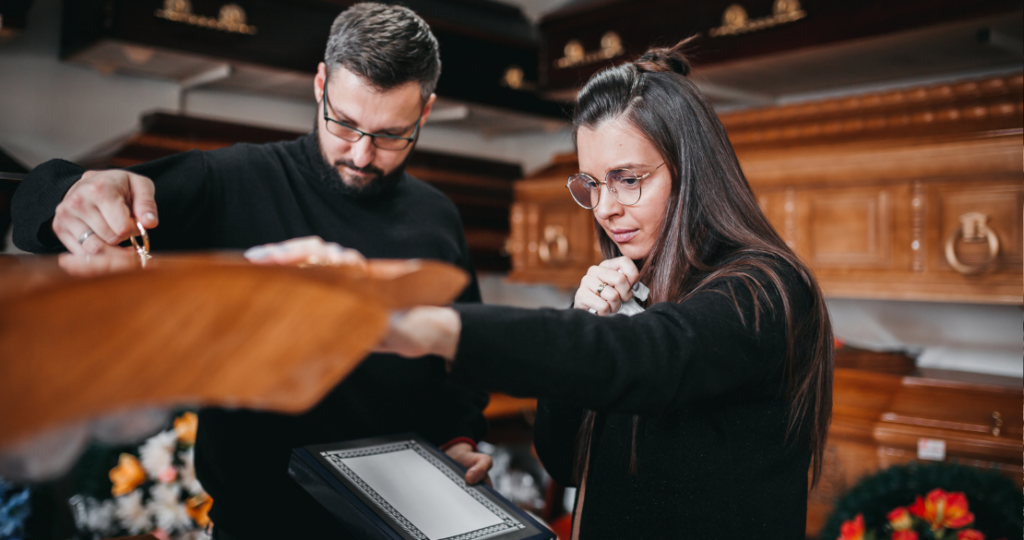It’s a profession rooted in service, compassion, and technical expertise—focused not only on the end of life but also on honoring lives, supporting families, and contributing to communities.
Let’s break down the myth and explore the diverse and impactful dimensions of mortuary science.
More Than Death: The Heart of Mortuary Science
Mortuary science professionals are often seen as caretakers of the deceased, but their role extends far beyond that. Here’s how they impact lives every day:
Supporting Grieving Families
Mortuary science is deeply tied to providing emotional and logistical support to families during some of their hardest days. Funeral directors and embalmers are counselors, advisors, and guides, helping families make difficult decisions with compassion and respect.
- Grief Support: Professionals often assist families in processing loss by creating spaces for meaningful remembrance.
- Planning Expertise: From selecting caskets to arranging memorials, they offer clarity and direction in overwhelming times.
Honoring Life Through Celebration
The work of mortuary science professionals isn’t just about saying goodbye—it’s also about celebrating lives. They help families create personalized services that reflect the unique stories, values, and legacies of their loved ones.
- Creative Memorials: Incorporating favorite songs, hobbies, or even themed ceremonies to honor individuality.
- Cultural Sensitivity: Adapting services to respect cultural, religious, and personal traditions.
Promoting Public Health
One lesser-known aspect of mortuary science is its critical role in public health. Embalmers and funeral professionals follow strict protocols to ensure safety, particularly in handling contagious diseases.
- Safe Handling of Remains: Protecting communities through proper care and hygiene.
- Educating the Public: Dispelling myths about funeral practices and advocating for green burial options or sustainable methods.
Community Leadership and Advocacy
Many funeral directors are small business owners and active members of their communities. They often participate in local events, support charitable causes, and educate people about death care.
- Business Owners: Providing jobs and contributing to the local economy.
- Advocates: Raising awareness about grief resources and end-of-life planning.
Breaking Stereotypes: The Skills Behind Mortuary Science
Mortuary science requires a unique blend of skills that span beyond the expected. Here are just a few areas where mortuary science professionals shine:
- Technical Expertise: From embalming to restorative art, mortuary professionals are trained in advanced techniques that require precision and attention to detail.
- Communication and Counseling: Empathy, active listening, and clear communication are vital when working with grieving families.
- Event Planning: Planning funerals and memorial services involves logistics, coordination, and creativity to meet families’ needs.
- Legal Knowledge: Professionals must navigate legal and ethical considerations, such as handling death certificates, permits, and state regulations.
The Future of Mortuary Science
As society evolves, so does the funeral services industry. Today’s professionals are embracing new trends that further challenge the stereotype of mortuary science being solely about death:
- Sustainability: Eco-friendly practices like green burials and biodegradable caskets are gaining traction.
- Technology: Virtual memorials, online obituaries, and digital grief support platforms are reshaping the way we remember and mourn.
- Inclusivity: Services are becoming more tailored, recognizing diverse cultural, religious, and personal needs.
These innovations show that mortuary science is a dynamic and forward-thinking profession with room for growth and creativity.
A Career of Meaning and Purpose
At its core, mortuary science is about serving people. It’s about guiding families through challenging times, honoring lives in meaningful ways, and contributing to the well-being of communities.
If you’re considering a career in mortuary science, know that it’s a path filled with purpose and opportunities to make a lasting impact—not just in times of loss but throughout the lives of the people you serve.
Ready to explore the possibilities? Learn more about how Pierce Mortuary Colleges can help you build a fulfilling career that’s about so much more than death. Visit our programs today!
